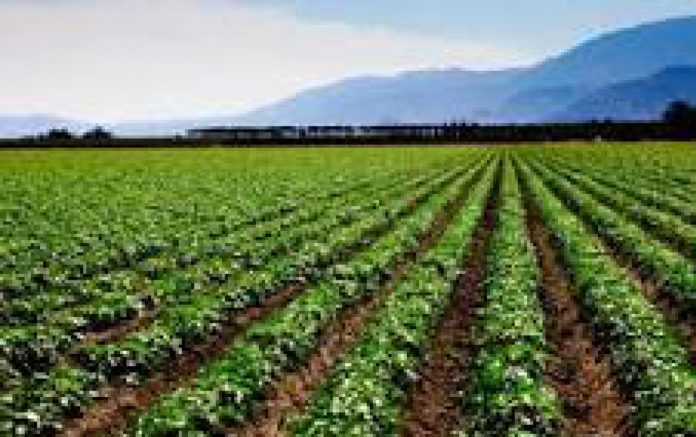The Nigerian Incentive-Based Risk Sharing System for Agricultural Lending (NIRSAL), has disclosed that it has facilitated over N102 billion as loans from Commercial Banks since its inception, across the various Agricultural Value Chains in Nigeria.
NIRSAL Plc, a wholly-owned corporation of the Central Bank of Nigeria (CBN), is a $500 million Non-Bank Financial Institution specifically designed to Redefine, Measure, Re-Price and Share agribusiness-related credit risk.
Addressing newsmen in Abuja, the institution’s managing director, Mr Aliyu Abdulhameed, said that NIRSAL has paid out a total of N4.6 billion as claims to providers of finance (Deposit Money Banks) on Credit Risk Guarantees that crystallised.
Abdulhameed said an additional N1.2 billion has been paid to prudent borrowers as Interest Drawbacks who have found their cost of funds and businesses boosted as a result.
He said that through NIRSAL’s facilitation, over 400,000 jobs have been created and two million lives positively impacted in the pre-upstream, upstream, midstream and downstream segments of the agricultural value chain.
According to him, ‘’It is important to state that through NIRSAL’s facilitation, over 400,000 jobs have been created and two million lives positively impacted in the pre-upstream, upstream, midstream and downstream segments of the agricultural value chain, specifically in the areas of Mechanisation, input supply, primary production and processing.
‘’Insurance is a critical measure deployed by NIRSAL in managing and mitigating risk. It is an essential component of NIRSAL’s five pillars. This Insurance facility is designed to expand agricultural insurance products to reduce credit risk and increase lending across the agricultural value chain.’’
He reiterated that NIRSAL’s goal is to expand insurance uptake by primary producers from 0.5 million to 3.8 million by 2026 and continually develop insurance products that will give financial institutions and Agricultural Value Chain players the comfort they need to lend to the agricultural sector while building the capacities of underwriters.
The NIRSAL helmsman said prior to NIRSAL’s intervention, agricultural insurance in Nigeria was indemnity based which only provided compensation equivalent to farmer’s cost of production. Adding that the uptake of this insurance product was very low.
He said NIRSAL has collaborated with NAICOM and NAIC (who led a consortium of four underwriters) to provide innovative and index-based insurance to protect investments in the upstream segment of the agricultural value chain, particularly those of smallholder farmers.
‘’Following the experience of the developed product, NIRSAL is in the final stages of developing the proprietary NIRSAL Comprehensive Index Insurance (NCII) product,” he said.
‘’In this regard, NIRSAL is leading a consortium of Agricultural Insurance underwriters to strategically transition their product focus from indemnity-based insurance to Area Yield Index, Revenue Index, Hybrid Index and finally to the NIRSAL Comprehensive Index Insurance product. This suite of innovative products does not only provide compensation to farmers based on the cost incurred but also covers projected earnings.’’
He said as at December 2019, a total of 35,160 farmers cultivating 36,347 hectares have used the NIRSAL Area Yield Insurance Index product to protect a total harvest value of over N4.77 billion.
Abdulhameed said insured farmers who suffered low area yields during the 2019 Wet Season have received appropriate compensation.
Abdulhameed pointed out that even at the maximum cover of 75 per cent credit-risk guarantee on agricultural loans.
‘’NIRSAL has maintained a crystallised guarantee ratio of about 1 per cent only, against the financial industry average ratio of 7.9 per cent. More importantly, the business model of NIRSAL, as a corporation, has shown remarkable resilience and sustainability in that it has proven to be an astute agricultural finance risk management institution that has demonstrably sustained its operations, preserved and expanded its capital base, thus one can safely say that its future sustainability is strongly assured.
‘’With Agriculture contributing over 29.25 per cent to Nigeria’s GDP, it is safe to say that organisations like NIRSAL are positively driving the transformation of the economy through agribusiness,’’ he added.


